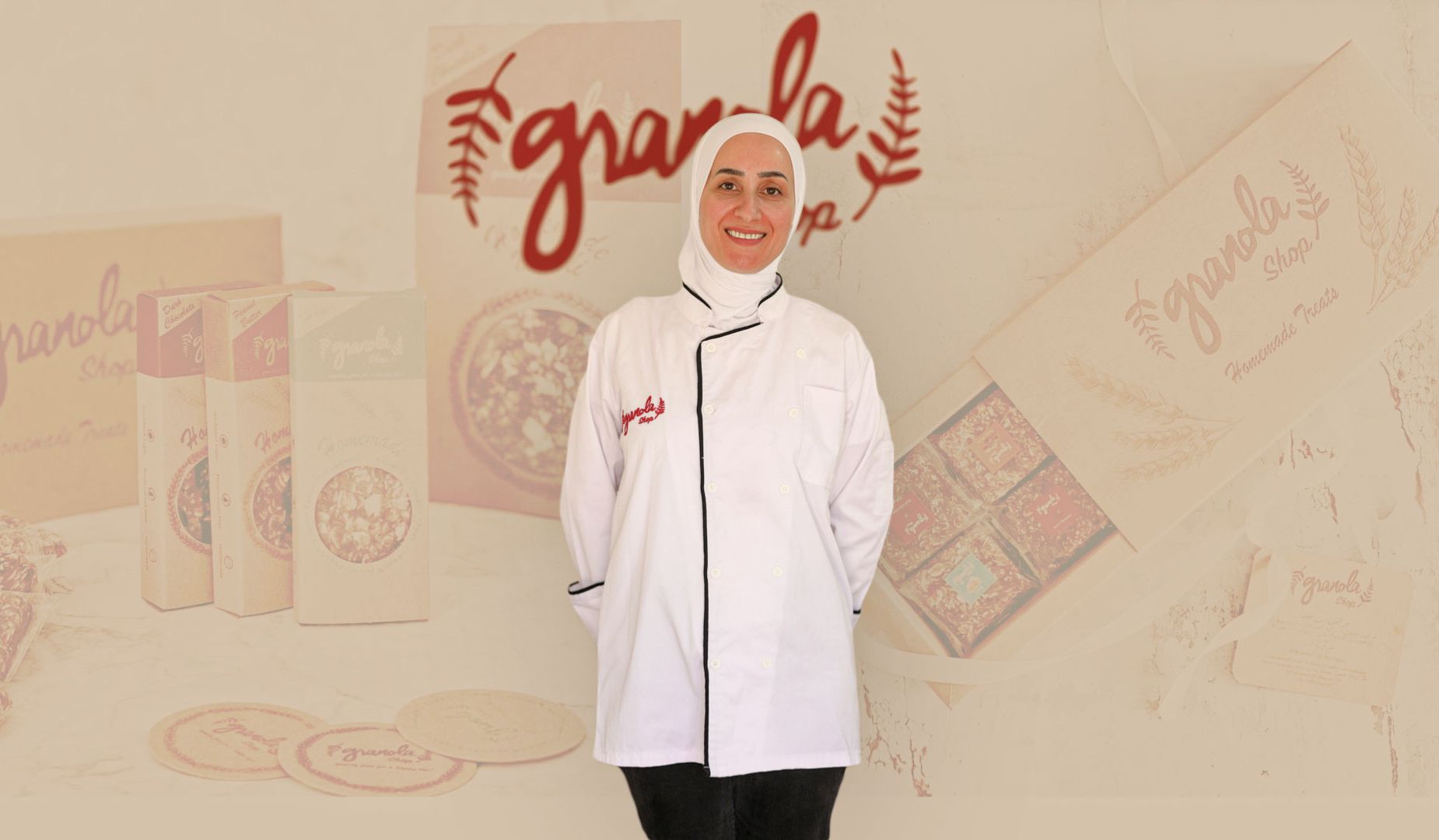
- 09 Jul 2023
In a world where finding genuinely nutritious snacks seemed like an impossible task, Rula Ishhac, an agricultural engineer and loving mother of four from Amman, Jordan, took matters into her own hands. Frustrated with the lack of options in the market, she embarked on a journey to provide her children with nourishing snacks.
Path to success in nutritious snacking
In 2018, Rula officially launched her business and established an online platform to showcase her products. Committed to offering snacks free from artificial colours, preservatives, hydrogenated oils, and added sugars, she quickly garnered a loyal customer base. Rula’s extensive research ensured that her snacks were suitable for people with diabetes, catering to a broader audience seeking healthier alternatives.
The heart of her brand lies in quality ingredients and mindful preparation, making her snacks the go-to choice for health-conscious consumers.
The recognition Rula has received speaks volumes about her exceptional product quality. In November 2022, she was honoured with the prestigious Shaik Khalifa Prize for her outstanding product made from dates. Additionally, she secured third place in the Wathba programme competition, showcasing her unique offering and future potential.
When the COVID-19 pandemic struck, Rula turned adversity into an opportunity for growth. She used this time to revamp her packaging, expand her distribution network, and strengthen her online presence. By collaborating with local stores and establishing an efficient delivery system, she ensured that her products reached her customers even during lockdowns.
While the MENA region is a relatively modest producer of greenhouse gases compared to some other parts of the world, the impact of climate change is already being felt in the region. Last November, Greenpeace reported that MENA countries are warming at twice the global average.
By embracing green practices, SMEs can contribute to reducing carbon emissions and achieving the Net Zero target. But there are compelling business reasons why they should do so, too.
These include attracting and retaining top talent – something that was recently named as the single top concern of SME executives in a survey by the World Economic Forum (52.5% of respondents said it was the biggest issue they faced).
By adopting green practices, SMEs can also differentiate themselves from their competitors and appeal to customers who are increasingly looking for brands that are committed to sustainability.
That’s not to say that every consumer in the MENA region is committed to only buying from green brands right now. That time will surely come, but today there is a wider market to consider. If SMEs in the region want to compete globally and access new markets in Europe, for example, they need to be aware of and cater to these shifts in consumption habits.
As well as this, many investors and lenders are now looking to fund companies that are committed to green initiatives and who can demonstrate a clear corporate social responsibility (CSR) policy. Adopting green practices can help SMEs access funding and grants that are earmarked for green projects.
CERA project and Rula’s vision for growth
Recognising the limitations of manual production, Rula applied for our CERA project, which supports and promotes the growth of micro, small, and medium-size enterprises (MSMEs). Being part of this project, implemented by LI and funded by the Embassy of the Netherlands in Jordan, is opening doors to new resources and connecting Rula with expertise to scale up her operations.
Rula aims to invest in machinery for dough spreading, cutting, mixing, and refrigeration, enabling higher production volumes while reducing reliance on manual labour.
Her startup currently employs two part-time women, with indirect support to six more, including two Syrian refugees. Rula’s vision is to continue empowering women and providing them with opportunities for economic independence.
Backed by the CERA project, she is set to expand her venture, generate more jobs, and bolster the local economy. The project will link her with esteemed, large-scale business enterprises ready to source local inputs. This opens a gateway for Rula and other MSMEs to participate and compete within the local food supply chain. With continued financial and technical backing from our team of experts, she also aims to target regional and international markets.
On the other hand, members of our Corporate Entrepreneurship Responsibility Alliance – primarily large Jordanian enterprises from various sectors – are receiving the necessary support to align their CSR initiatives with the local community’s economic needs. This alignment not only offers them new business opportunities but also fosters ethical and sustainable practices and contributes to development of MSMEs like Rula’s.
Looking ahead, Rula envisions her granola bar business evolving into a full-fledged manufacturing operation. She plans to establish production lines, improve packaging, and expand distribution channels across Jordan and beyond. Within five years, Rula aims to establish a dedicated shop to showcase her range of products, with a particular focus on oat-based snacks.
Read more about CERA project and the concept of corporate entrepreneurship responsibility